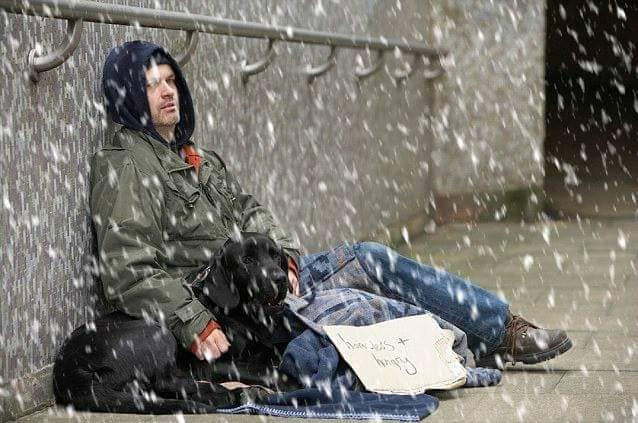


Across the United Kingdom and continental Europe, a quiet scandal is unfolding: the persistent and shameful overrepresentation of military veterans in the homeless population.
In Britain, it is not uncommon to encounter former soldiers in makeshift encampments beneath railway arches or queuing for soup kitchens alongside long-term unemployed civilians. Data is fragmentary, perhaps deliberately so, but veteran charities estimate that ex-service personnel make up between 4% and 6% of the UK’s homeless population. That may sound modest. Yet when one considers that veterans represent less than 2% of the general population, the imbalance becomes morally indefensible.
The problem is not confined to Britain. In Paris, veterans of the French Foreign Legion and former gendarmes can be seen living rough, wrapped in blankets by the Seine. In Berlin, homeless shelters report a noticeable rise in ex-Bundeswehr troops seeking refuge. Warsaw and Kraków tell similar stories, where Polish Afghanistan veterans struggle with housing just as much as with unprocessed trauma.
The root causes of this crisis are not difficult to identify. Military life, with its rigid structure, camaraderie, and clear mission, often leaves soldiers ill-equipped for the chaotic, unstructured realities of civilian life. Many emerge from service suffering from PTSD, physical injuries, or fractured family ties. But the real scandal lies in how little support awaits them upon discharge.
Britain’s Ministry of Defence likes to boast of “Armed Forces Covenant” principles, promising fair treatment for veterans. In practice, however, the Covenant remains largely aspirational.
The much-heralded Veterans’ Housing Programme, announced with fanfare in late 2024, has yet to deliver results of substance. Ministers promised 1,500 dedicated housing units by mid-2025, prioritised for ex-service personnel with complex needs. As of July, fewer than 250 have been completed. The rest are entangled in local authority disputes, planning delays, or have simply failed to materialise.
Worse still, there is no binding requirement for councils to prioritise veterans for social housing, despite their supposed “priority status.” Some local authorities, particularly in metropolitan areas like London and Manchester, argue that high demand, not least from recently arrived illegal migrants, and insufficient stock make special treatment impossible. That may be politically convenient, but morally, it is little short of cowardice.
France and Poland have taken different routes. In response to rising veteran homelessness, President Macron’s government launched a trial scheme in late 2023, offering transitional accommodation in underused military barracks outside Lyon and Marseille. These units double as retraining centres, offering vocational courses in engineering, construction, and logistics. Early reports suggest that 60% of participants find stable housing within six months, and a similar number secure employment.
Poland’s Ministry of National Defence, grappling with a cohort of disillusioned veterans from missions in Iraq and Afghanistan, has adopted a community-based model. Municipalities receive targeted grants to convert empty public buildings into veteran shelters tied to psychological and employment support services. Kraków’s “Soldier’s Step Forward” programme has drawn particular praise for its holistic, low-bureaucracy approach.
By contrast, Britain still relies heavily on third-sector organisations, all of which do commendable work with limited resources. But charitable provision is, by definition, patchy and inconsistent. It cannot, and should not, replace state responsibility. In much of Europe, the lack of a unified veteran identity exacerbates invisibility.
What unites these stories is the unspoken sense that veterans become inconvenient the moment they cease to be useful. Politicians are quick to wear poppies in November, to tweet solemn tributes on Remembrance Day, and to issue platitudes about “the debt we owe.” Yet when it comes to funding long-term housing support or embedding mental health services into transition programmes, political will evaporates.
The failure is not only moral but also strategic. A homeless veteran is not just a personal tragedy; it is a squandered investment. Governments spend hundreds of thousands training each soldier. When that investment ends up on the street with a cardboard sign, the loss is not only to the individual but to society as a whole.
Nor is this solely an issue of older generations. Increasingly, veterans of Iraq, Afghanistan, Mali, and Syria, the so-called “forever wars”, are appearing in shelter statistics. Many are in their 30s or 40s, still physically capable, still willing to contribute, but blocked by bureaucratic indifference and spiralling rents.
It is time for governments across Europe to treat veteran homelessness not as a side effect of poverty, but as a breach of trust. A serious, binding obligation must be made, codified in law, backed by funding, and immune to political cycles. Dedicated housing, fast-track access to public services, tailored mental health support, and pathways to employment must be the minimum standard, not a bonus for good behaviour.
One wonders what a young private thinks today, marching out on their first deployment. Do they see a country that will stand by them, as they stand by it? Or do they glance at the homeless man with medals pinned to his coat, and quietly wonder if they’ll be next?
Until the answer is unambiguous, until every veteran is guaranteed a bed and a roof, the posturing of governments will remain hollow, and the disgrace, ours to bear.
_____________________________________________________________________________________

In a thunderous rebuke to official silence, Britain’s most elite warriors — the SAS, SBS and SRR — have broken cover in an unprecedented show of unity, demanding an end to what they call a legal “witch-hunt” against veterans of the Northern Ireland conflict.
_____________________________________________________________________________________